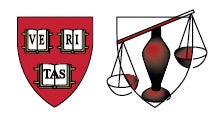Antony Loewenstein, author of the bestselling book “My Israel Question” and more recently “The Blogging Revolution,” visited the Berkman Center to discuss political transformation, internet censorship and the role of dissident bloggers around the world. (Watch the webcast.)
Drawing from interviews with bloggers, Loewenstein, a Sydney, Australia-based freelance journalist, author and blogger, spoke of the challenges faced by those working under repressive regimes—including Internet blackouts and imprisonment. What surprised him, he said, was that many of the bloggers he interviewed view the US as complicit in the suppression of online speech around the world, not as a champion of free speech.
“I spoke in these nations with writers, bloggers, dissidents, politicians, citizens, men and women, activists, conservatives and liberals,” he said. The answers he received were as consistent as they were remarkable: According to many, Western involvement often does more harm than good. Using the example of Egypt (which he identified as the second largest recipient of United States foreign aid), he spoke of bloggers who opposed their own government yet who were more hostile to the US and its aid, for it was that money—earmarked for “security”—which they claimed was being used to repress their rights.
“The general consensus across the globe was that political and military meddling by Washington and London was making the job of real democrats much more difficult,” said Loewenstein.
Despite obstacles, Loewenstein said, some bloggers are still able to express themselves online. He highlighted examples from around the world, including Egyptian women protesting female genital mutilation, Iranian musicians distributing their illegal hip-hop tracks through file-sharing software, and Chinese bloggers campaigning against “the role of Western multinationals, such as Google, Cisco, Yahoo and Microsoft, in the dubious role of assisting state censorship.”
“Online activists find the medium intoxicating because of its reach and global impact,” Loewenstein said. The possibility exists for bloggers to not only influence the political winds of their own communities, but to also communicate with organizations and individuals beyond their own borders. It is precisely that possibility which has led many repressive regimes to take drastic measures against online freedom of expression, he said.
The tools available to repressive regimes vary greatly, Loewenstein explained. In smaller states such as Burma, repressive leaders can easily catch dissident bloggers, and even shut down the entire country’s access to the web. In China and other countries which depend on the internet for much of their economic life, regimes can deploy automated filters that can identify and remove offending material, ensuring that bloggers can’t reach their coveted wider audience. As Loewenstein pointed out, these actions are sometimes accomplished with assistance from multinational corporations interested in maintaining access to markets controlled by repressive regimes.
Loewenstein hailed the Global Network Initiative as a cause for optimism. The initiative, developed in partnership with the Berkman Center for Internet & Society, promotes a corporate code of conduct on privacy and free speech. Joined by a coalition of human rights groups, media development and research organizations, and internet and communications companies such as Google, Yahoo! and Microsoft, the initiative aims to ensure that companies acknowledge their responsibility to respect and protect the freedom of expression and privacy rights of their users.
–Anthony Lux
